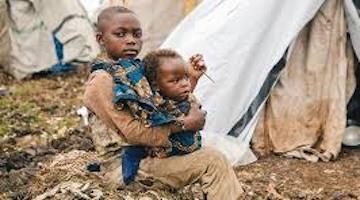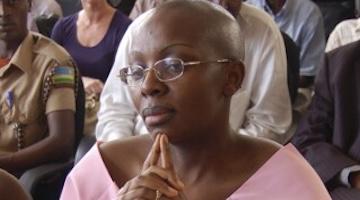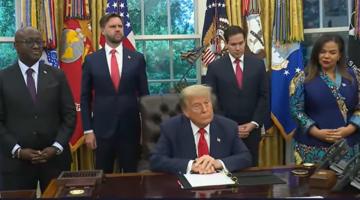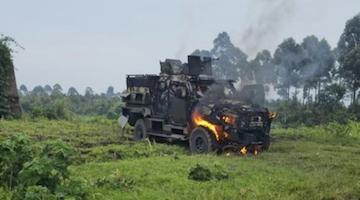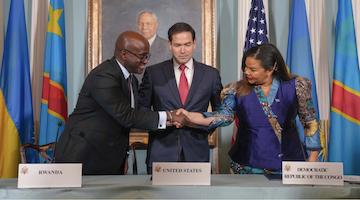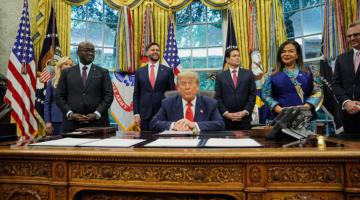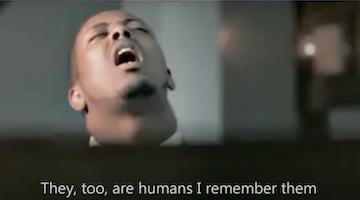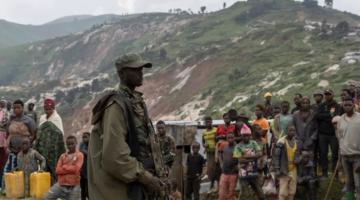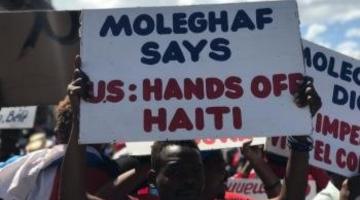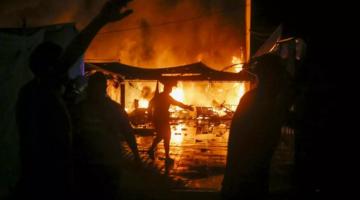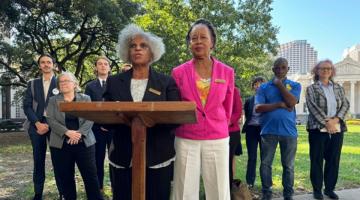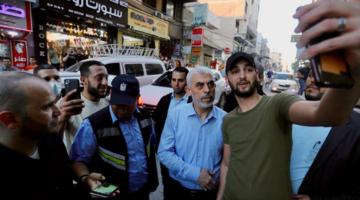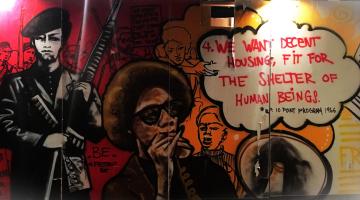Citing the Rwandan bloodbath, the US Senate is considering yet another measure justifying so-called “humanitarian” military intervention.
“The Tutsi Rwandan Patriotic Front massacred hundreds of thousands of Rwandan Hutus.”
Last week New Jersey Senator Robert Menendez introduced a Senate Resolutioncommemorating the 25th anniversary of the 1994 Rwandan Genocide. It “calls on the United States and the international community to cooperate in preventing and responding to genocide and crimes against humanity in nations across the globe.” Like the “Elie Wiesel Genocide and Atrocities Prevention Act” passed in December 2018, the Menendez resolution bolsters the “humanitarian interventionist” argument that US policymakers have deployed to justify bombing, special forces, and/or sanctions in Libya, Syria, and now Venezuela.It describes the 1994 Rwandan Genocide as the genocide of 800,000 Rwandan Tutsis by Hutu extremists, but Canadian investigative journalist Judi Rever’s“In Praise of Blood: Crimes of the Rwandan Patriotic Front”is just one of the latest books that upends that version of events. Those previously published books include "Rwanda and the New Scramble for Africa: From Tragedy to Useful Imperial Fiction"by Robin Philpot, “Surviving the Slaughter: The Ordeal of a Rwandan Refugee in Zaire”by Marie Beatrice Umutesi, “Dying to Live: A Rwandan Family’s Five-Year Flight Across the Congo”by Pierre-Claver Ndacyayisenga, “How Paul Kagame Deliberately Sacrificed the Tutsi”by Jean-Marie Ngadimana, and “TheAccidental Genocide,” a compendium of primary-source documents compiled by former ICTR defense attorney Peter Erlinder.
Judi Rever was scheduled to speak about her book at Tarrant County College in Hurst, Texas, on April 1st, but some Rwandans in the US protested, calling her a genocide denier. Rwandan war and genocide survivor Claude Gatebuke published a counterargument headlined “Tarrant Community College: Why Author Judi Rever’s Scheduled Presentation Must Go Ahead” in the Black Star News, and the talk went ahead, despite a few protestors wearing t-shirts accusing her of genocide denial.
“The Menendez resolution bolsters the ‘humanitarian interventionist’ justification for bombing and/or sanctions in Libya, Syria, and now Venezuela.”
Kagame’s Rwanda has a longstanding alliance with Netanyahu’s Israel based on their constant equation of the Nazi Holocaust and the Rwandan Genocide, but these two tragedies were in fact not at all similar. The Jews did not invade Germany or any other European nation. They did not seize territory or wage a four-year war. They did not seize state power at the end of a war. The European Jews who perished in the Holocaust were a minority driven to concentration camps and murdered en masse by xenophobic white Christian supremacists.
The Tutsi Rwandan Patriotic Front (RPF) led by General Paul Kagame was in fact a division of the Ugandan Army, and it did invade Rwanda on October 1st, 1990. It did wage a four-year war against the Rwandan Army and the civilian population, 85% of whom were Hutu. They massacred hundreds of thousands of Rwandan Hutus before seizing power in Kigali on July 4, 1994. So who’s denying genocide?
Hutu and Tutsi genocide
Judi Rever, in In Praise of Blood: Crimes of the Rwandan Patriotic Front, did not deny the Tutsi Genocide in which hundreds of thousands of Rwandan Tutsis died between April 6, 1994 and July 4, 1994. Nor do any of the other aforementioned authors. They instead add the history and documentation of the Hutu Genocide committed by the Tutsi army before, during and after the Tutsi Genocide in Rwanda.
Rever’s book implicates General Paul Kagame and his Tutsi army in the massacres of both Hutu and Tutsi people. “Kagame did not stop the genocide,” she told the Canadian Broadcasting Corporation, “because at the same time that ethnic Tutsis were being killed in Hutu-controlled zones, his Tutsi troops were killing with equal zeal and organization. And in every zone that Kagame’s army entered and controlled, they killed Hutus massively.”
Not only that, Rever writes, Kagame’s army also fueled the genocide against the Tutsi. They infiltrated the Hutu militias very successfully. This is not only well-documented by Rever but is also wholly credible because Hutus and Tutsis are Rwandans who speak the same language, share the same culture, and even marry one another, although the Hutu and Tutsi identity are patrilineal. The sons and daughters of a Tutsi father are Tutsi, the sons and daughters of a Hutu father are Hutu, regardless of their appearance.
According to Rever, the Tutsi infiltrators of Hutu militias baited the violence; they egged it on, and some of their commandos even participated in the slaughter of some Tutsis at roadblocks. Why? Because Kagame and his inner circle knew that the massacre of the Tutsi would later provide an excuse for the dictatorship by the Tutsi minority who would then be able to claim victim status. That is why the Rwandan government and its supporters encourage the world to believe that the genocide was a Tutsi genocide only and that it occurred in 90 days, between April 6 and July 4, 1994. They would rather no one dwell on the four-year war during which the Tutsi army massacred Hutus, or the ensuing wars in the Democratic Republic of the Congo when Kagame’s army chased and massacred hundreds of thousands of Hutus fleeing across the Congo and caused the death of millions of Congolese as well.
“In every zone that Kagame’s army entered and controlled, they killed Hutus massively.”
Rever provides documentary evidence from testimony of defectors from Kagame’s Tutsi army, many of whom said that they fueled the genocide against the Tutsis and committed a genocide against the Hutu as well.
In an interview with the CBC, Rever said:
“At least 500,000 Hutus were killed by Kagame’s troops during the genocide and in the months after the genocide. Now, some people have said that figure could be as high as a million.
“The killing in RPF controlled zones was not investigated. And I point out that Human Rights Watch was on the ground after the genocide and didn’t fully investigate the areas that Kagame controlled.
“So number one, there’s a problem with the human rights organizations that were there.
“Number two, the journalists who were there during the genocide had a very hard time figuring out what was going on at first. And when they did go into RPF zones, they were under RPF escort.
“Number three, we had an incredible campaign of propaganda going on that started with an NGO called African Rights. And they basically primed world opinion and journalistic opinion on what happened during the genocide. And this was an organization that, we have learned, was a front organization for the RPF, for Kagame’s political party. This was an organization that received funding from the government, from Kagame’s government, afterwards. And so we’re able to look at how they did research, then how that research from African Rights was absorbed and regurgitated by even Human Rights Watch and by journalists worldwide.”
“At least 500,000 Hutus were killed by Kagame’s troops during the genocide.”
Western powers, including Canada, the UK, and the US have sustained that propaganda campaign for 25 years and made it a centerpiece of their “humanitarian” interventionist argument. Now the Senate resolution introduced by New Jersey Senator Robert Menendez continues what Judi Rever calls their “praise of blood.” Rever writes:
“It seemed that the RPF could now commit crimes out in the open and still receive billions of dollars in aid. And Kagame could continue to receive human rights awards despite these murders, the Spanish indictment and Amnesty’s reports—buoyed by propaganda and protected by powerful friends in the West. What were these Western allies supporting? From the point of
view of the RPF’s victims, it all seemed to be in praise of blood, an endorsement of mass murder.”
Ann Garrison is an independent journalist based in the San Francisco Bay Area. In 2014, she received the Victoire Ingabire Umuhoza Democracy and Peace Prizefor her reporting on conflict in the African Great Lakes region. She can be reached at ann@anngarrison.com.
COMMENTS?
Please join the conversation on Black Agenda Report's Facebook page at http://facebook.com/blackagendareport
Or, you can comment by emailing us at comments@blackagendareport.com

